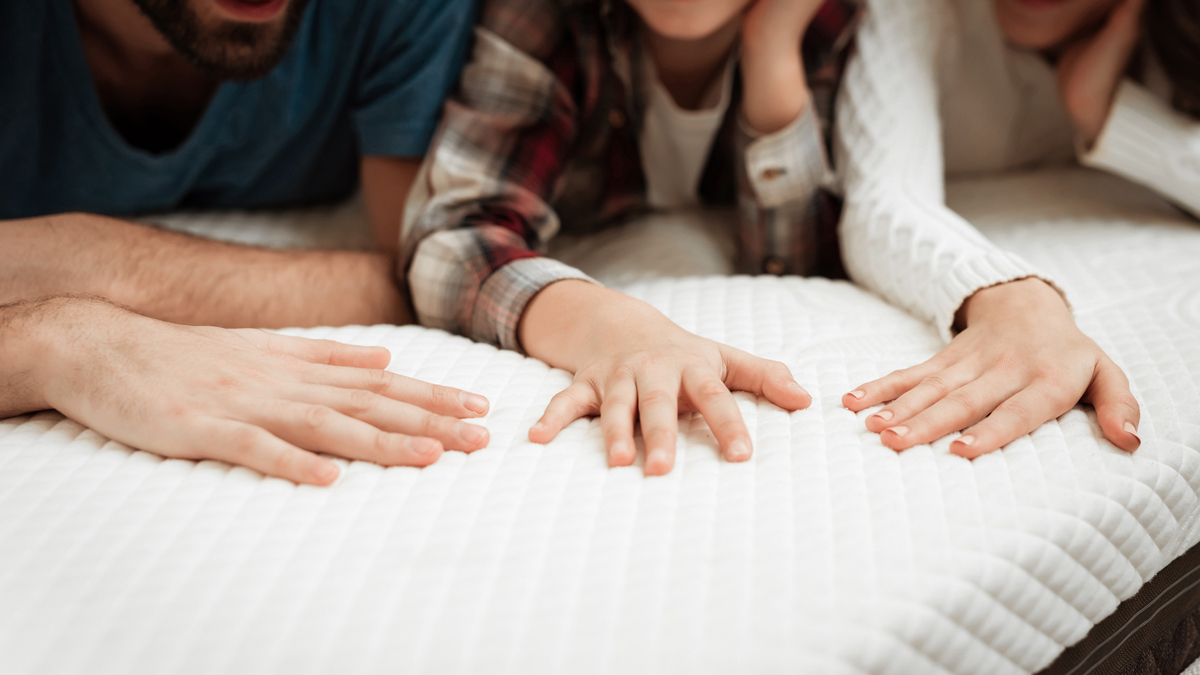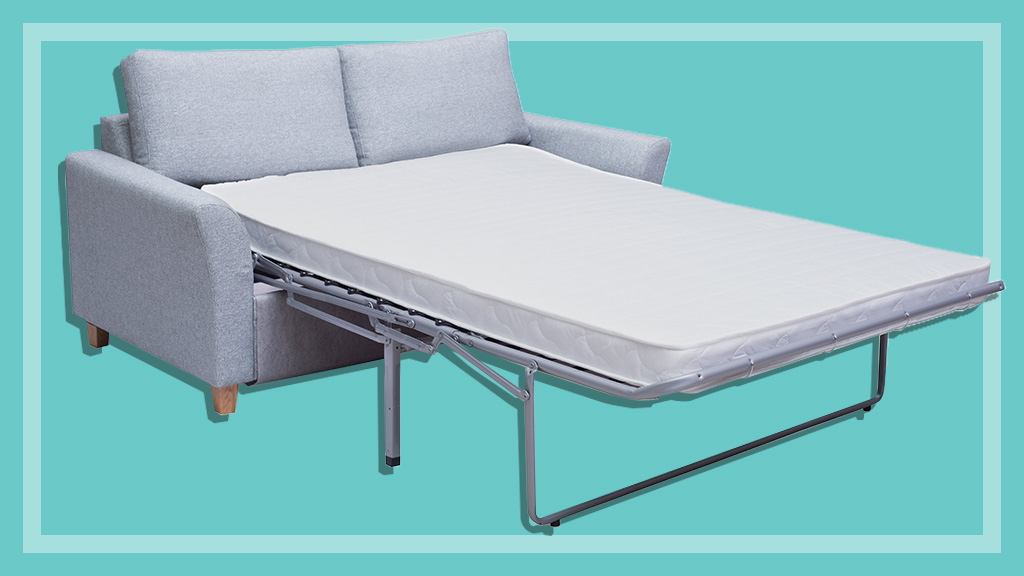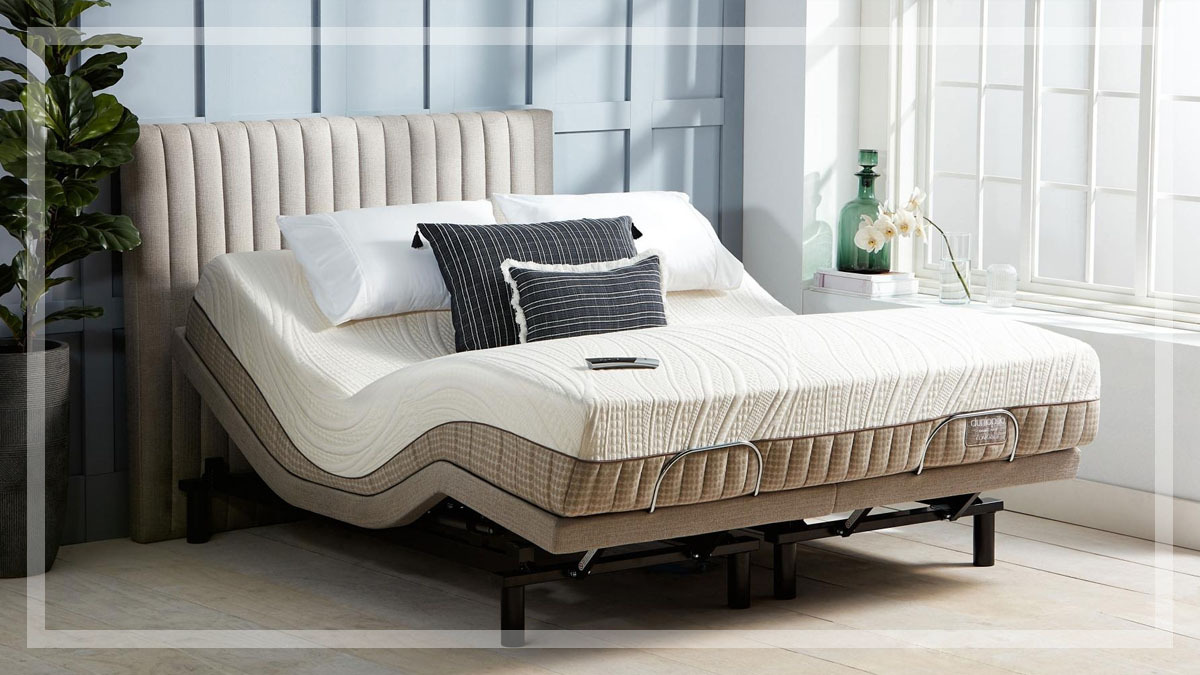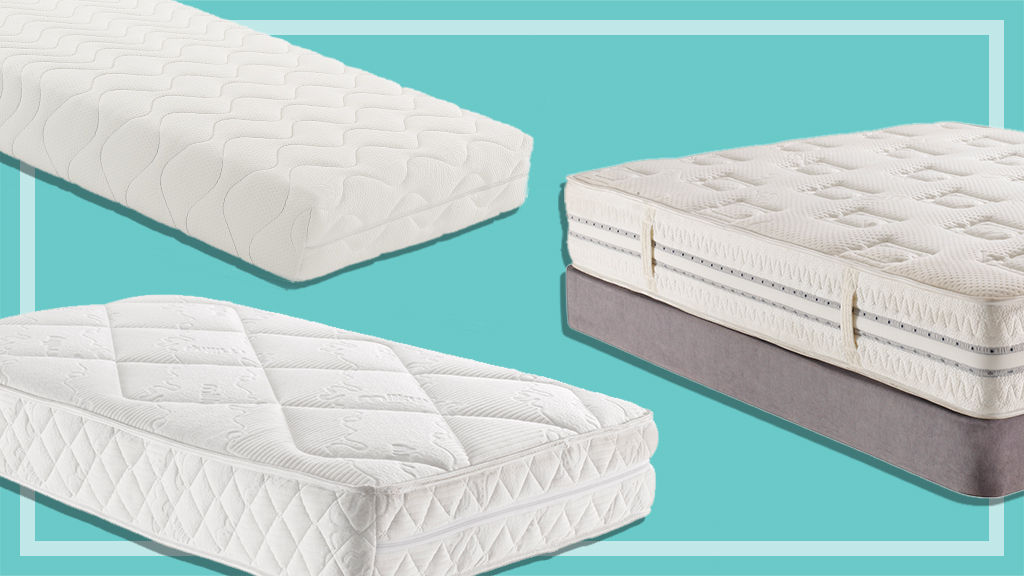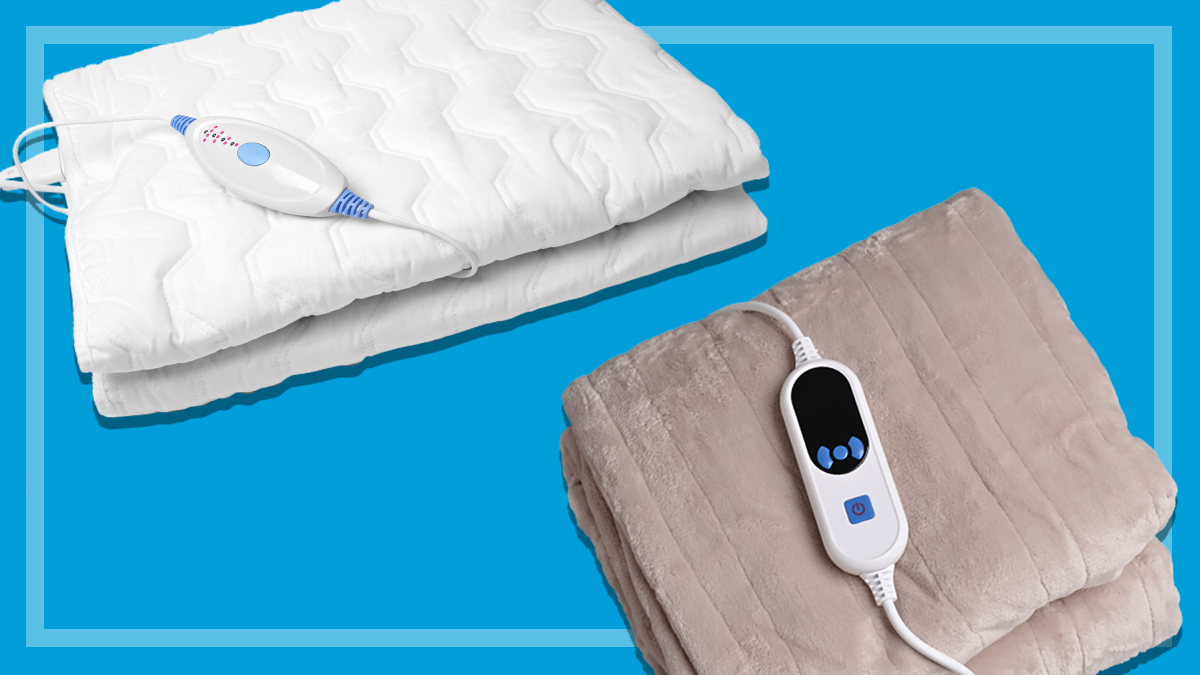Get our independent lab tests, expert reviews and honest advice.
Electric bed retailer Revitalife using ‘sleep survey’ as sales tool

Need to know
- Revitalife admits it uses its 'sleep survey' as a marketing tool for sales leads, though survey takers are not informed of this
- Of the 23 clinical studies Revitalife referred us to, only one had anything to do with sleep – and the results were far from conclusive
- Our case studies tell of taking a phone survey about their health that led to a salesperson visiting their homes to sell pricey beds
Following an investigation by the ACCC, Revitalife has admitted in a court-enforced undertaking that it likely breached the Australian Consumer Law with its sales tactics and has agreed to implement a compliance program.
The company has also provided $57,646 in refunds to 49 customers who may not have received their correct entitlements under consumer law.
With distribution centres in Sydney, Melbourne, Adelaide and Perth, and a head office and showroom on the Gold Coast, the “therapeutic sleep systems” manufacturer Revitalife is a big operation.
But is it a healthcare provider or just a business out to sell electric adjustable beds and recliner chairs?
Its branding would suggest the former, while the reality seems to be the latter.
Based on our investigation, Revitalife appears to be using its online and telephone ‘health survey’ to inflate its healthcare credentials in order to get people to buy expensive beds. (Revitalife also calls it a ‘sleep survey’.)
When we contacted the company, Revitalife openly acknowledged that it uses its sleep survey to generate sales leads and also pays third-party companies to survey potential customers.
Revitalife appears to be using its online and telephone ‘health survey’ to inflate its healthcare credentials … to get people to buy expensive beds
The tactic has triggered a number of complaints to CHOICE about Revitalife in recent years.
Participation in the survey will “help continue to see the improved health and wellbeing of residents around Australia,” the company says.
But whether filling it out gives Revitalife the authority to to try to sell one of its beds on the promise that it will provide a better night’s sleep is another question.
Revitalife’s marketing is targeted toward elderly people who may in fact be suffering from the sleep issues that can come with age and associated medical conditions.
But medical issues are best dealt with by health professionals, not a retailer whose solution is to buy one of its beds.
Salesman at the door
After taking part in a Revitalife survey, Chris got in touch with us to report what happened next.
“A follow-up call resulted in a visit from a salesman, whose focus was solely on adjustable beds, or ‘therapeutic sleep systems’, as a potential aid for those with musculoskeletal problems,” Chris told us.
(While he may have been surprised by the sales call, Chris said he felt “that the time spent was not wasted” He didn’t, however, buy a Revitalife bed.)
In October 2019, Debera got in touch with a story similar to Chris’s.
After taking a survey, Debera got a phone call and was told a “health and wellbeing” company would be visiting to advise her of the services available in her area.
We were promised support for our health needs and were only a captive audience to sell us two expensive beds
This sounded good to Debera, because she and her partner have disabilities and had been wondering what their options were.
“The rep came and wrote down all our medical conditions and their consequences,” Debera told us.
“After an hour and a bit, he brought out brochures for a tilting bed at $7500 each. No mention of community or health and wellbeing services in our area. We were promised support for our health needs and were only a captive audience to sell us two expensive beds. The rep had no medical qualifications, but he had an opinion on our current medical treatments and of doctors in general. He was trying to act much cleverer than he is and so came over as completely fake.”
While these consumers didn’t end up buying a bed, others have.

No medical evaluations – just the whiz-bang bed
In July this year, a woman we’ll call Jane got in touch with us after her mum took a Revitalife survey and ended up with “a new whiz-bang moveable bed that actually won’t solve her sleep problem because it is a medical problem that requires a medical solution”.
Jane’s mum suffers from both Parkinson’s and dementia and is on a level-four homecare package, “which means there is a rather substantial amount of assistance provided within the home,” Jane says.
The bed cost $4000.
Revitalife’s online sleep survey has a field that says “based on your survey answers, we would love to share some information with you on how to improve your sleep”.
The field comes after the instruction to enter your email address and phone number.
If you click yes, you give Revitalife the go-ahead to contact you by phone, mail or email about promotional offers until you opt out.
But as in the examples above, Jane’s mum was surveyed over the phone.
“So they contact you and they invite you to take part in a health survey”, Jane told CHOICE in a recent interview. “Now to my parents, a survey is like an opinion poll and that’s just it. You do it and you don’t hear anything more about it.”
If Jane’s mum had consented to being contacted by a salesperson during the phone survey, she wouldn’t have done so knowingly, Jane says.
I was really concerned because no checks were done. They could have put my mother into a very dangerous position, notwithstanding the financial outlays
And what was a salesperson doing giving what amounted to health and wellbeing advice in the first place?
“The critical issue that I had with the bed was that occupational therapists had actually been in the house and had assessed her living situation,” Jane says.
But that wasn’t taken into account by the Revitalife delivery person.
“There was no assessment that was actually made, and there was nothing from Revitalife about that requirement or anything like that,” Jane says. “I don’t even know if they went in and determined whether there were enough power points in the room. There was no instruction on how to use it or anything like that. In fact, it wasn’t even plugged in when I went to visit.”
(The bed in question raises and lowers electronically like a hospital bed. Online instructions wouldn’t help, since Jane’s mum doesn’t really use the internet.)
They’re using a survey which isn’t a survey. It’s selling under the guise of market research
“The person just basically kind of delivered it, took the old bed way, and didn’t explain anything to my parents. Not only do they have dementia, but they’re also 85. You should at least explain to somebody how to use the bed.”
As part of the safety audit of her house by the occupational therapist, Jane’s mum’s previous bed had had its legs shortened so it was closer to the floor and easier to enter and exit.
After that bed was taken away, the Revitalife delivery person did not show her mum how to lower the new bed to the same level or give any kind of demonstration, leaving the woman vulnerable to injury.
“In my parents’ case we’re talking about vulnerable people. But we’re also talking about somebody who has had an occupational therapy assessment of her home to make it safe for her to live in. They’re not doing their own independent assessment. I was really concerned because no checks were done. They could have put my mother into a very dangerous position, notwithstanding the financial outlays.”
Jane got in touch with Revitalife with her concerns, and a company rep visited her mum’s house to show her how to use the bed. She says the company has been responsive.
“Once you talk to them, you realise they’re not a scam company. The people there are very genuine. I just don’t agree with their techniques. They’re selling a very pricey item and they are actively going out and selling it to vulnerable people. It’s kind of the modern-day equivalent of door-to-door salesmen. They’re using a survey which isn’t a survey. It’s selling under the guise of market research. There are no checks and balances, and they are selling to a vulnerable part of the population. My parents didn’t go out and buy. They were sold to.”
We’ve given Revitalife a 2020 Shonky Award for its dodgy sales tactics, using a ‘sleep survey’ to target vulnerable older Australians.
Sleep expert: Health claims should be scientifically proven
Professor Amy Jordan, director of the sleep laboratory at the University of Melbourne’s School of Psychological Sciences, takes a dim view of any company that makes individual recommendations to improve sleep that aren’t backed by a professional medical assessment.
“In my opinion, no company should be making claims about improving aspects of health, including sleep, unless the claims have been scientifically demonstrated independently,” Jordan told CHOICE. “Most mattresses have not been independently verified.”
And when it comes to dealing with sleeping problems, having the right bed helps, but it only goes so far.
“There is very little data that particular sleep disorders can be improved by one mattress over another,” Jordan says. “That it is comfortable is the most important thing.”
She also casts doubt on the use of a retailer survey for determining the nature of a sleeping problem.
There is very little data that particular sleep disorders can be improved by one mattress over another
Professor Amy Jordan, director of the University of Melbourne sleep laboratory
“While questionnaires can be useful for identifying some sleep conditions, sleep disorders need treating by a sleep physician,” Jordan says.
“To my knowledge there are no mattresses that can treat sleep disorders adequately. If, on the other hand, someone is just trying to find a comfortable mattress, laying on it would be a much more useful test than a survey.”
Business model based on a ruse
The Melbourne-based Consumer Action Law Centre, which has also been keeping an eye on Revitalife, says the use of a survey for such purposes may be breaking laws.
“Revitalife’s business model seems based on a ruse,” Consumer Action CEO Gerard Brody told CHOICE. “The so-called health survey is just a way to create a need for a very high cost product that the consumer did not seek out.”
Brody cited a 2013 Federal Court decision that found a vacuum cleaner company had gained entry into the homes of older Australians under false pretenses. The reps said they were there to make repairs, but they were really there to sell expensive new vacuum cleaners.
The so-called health survey is just a way to create a need for a very high cost product that the consumer did not seek out
Consumer Action CEO Gerard Brody
“The Australian Consumer Law requires sales representatives to, as soon as practicable, clearly advise the customer that their purpose is to sell goods or services,” Brody says. “There are real questions whether this business always complies with this requirement.”
Consumer Action also shared a case study with us in which a couple were visited by Revitalife salespeople at their home who had said in an earlier call they would like to visit to provide “information about health products”. The salespeople then pressured the couple into buying a Revitalife bed, a purchase they regret. (As part of the sell, salespeople dropped the price from $8200 to $6300 on the spot and threw in four sets of “specially made” sheets as a bonus.)
The couple ended up paying a $2300 deposit and signing up for 65 payments of $75 each to come directly out of their bank account over 30 months. The couple told Consumer Action that they would have never consented to the Revitalife reps making a house call if they’d known their intent was to sell them a bed.
The company that owns Revitalife, Clews Holdings, has gotten into legal trouble before.
In a case brought to court by the ACCC in 2016, the Clews Holdings business Seniors Plus was fined $20,400 for making false and misleading claims about its beds.
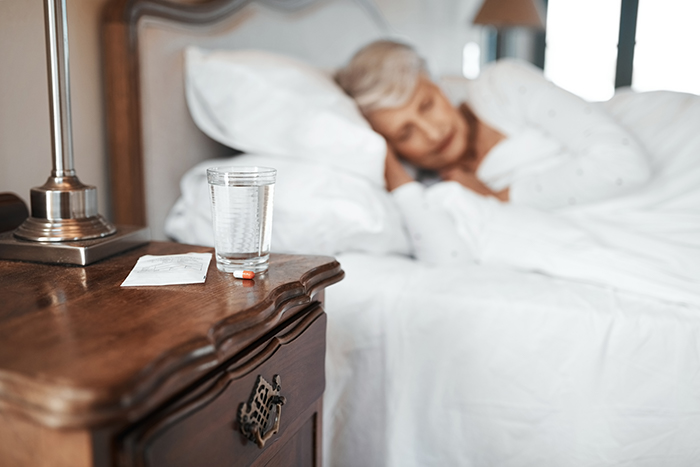
The science behind Revitalife
Revitalife calls its electric adjustable beds ‘Cloud Luxury and Euro Luxury Therapeutic Sleep Systems’ and says they provide “a type of therapeutic massage known as Whole Body Vibration Therapy”.
The feature is the basis for the beds’ listing on the Australian Register of Therapeutic Goods (ARTG) as a Class 1 medical device, yet none of the ten clinical studies on the product that Revitalife sent us had anything to do with sleep.
The clinical papers section of Revitalife’s website focuses on a fibre called Celliant, the product of “decades of development by leading experts in medicine, physics and biology, as well as a dedicated Scientific Advisory Board”.
All the research has resulted in “a proprietary fibre that is loaded with a potent mix of thermo-reactive minerals”.
“Powered by our own metabolism, it is more hybrid engine than textile. It recycles and converts radiant body heat into something that gives the body a measurable boost— infrared energy,” Revitalife claims.
Of the 13 Celliant clinical papers and reports Revitalife referred us to after we contacted the company, only one had to do with improving sleep quality
(Celliant was formerly known as Holofiber. Revitalife pays Celliant’s US-based owner, Halogenix, a licence fee for the rights “to have this superior technology in our products”, as a Revitalife spokesperson put it.)
A series of clinical papers also appears on the webpage.
One, dated February 2010, details the findings of a clinical trial of six people conducted at the University of California (Irvine campus) “on the effect of Optically Modified Polyethylene Terephthalate Fiber mattress covers on sleep disturbances in patients with chronic back pain”.
The paper doesn’t say anything about the subjects being elderly or having sleep problems other than those related to lower back pain.
The paper concludes that the fibre resulted in a median sleep efficiency improvement of 2.6 % during the trial, that people who woke up after falling asleep stayed awake 18.3 minutes less, and that the Celliant mattress covers subjectively improved sleep for three the six subjects, and for two it helped with nocturnal back pain. The mattress reduced sleep duration but improved sleep efficiency, according to the trial results.
The paper indicates that a further trial of 12 subjects was planned, but we couldn’t find evidence that this took place.
We asked the TGA if we could see the evidence but were told it was commercial in confidence
Even though Revitalife says it “firmly believes in and supports the technology”, the company didn’t know whether it had or not either. It turned out that no further trials had been done.
Despite the fact that there was only one trial of six subjects involving sleep, and that the participants slept 42 minutes less when they slept on the mattress with Celliant Technology, the spokesperson told us that “Celliant-powered mattresses, bedding and sleepwear are scientifically tested to give you not only more, but better sleep”.
Revitalife stresses that Celliant is classified as a medical device by the US Food and Drug Administration and designated as a Class 1 Medical Device in Canada, the European Union, Australia and New Zealand.
The Revitalife beds were included in the Australian Register of Therapeutic Goods on the basis they are deemed to be Class I medical devices, due to claims associated with increasing blood flow, circulation and tissue oxygenation
TGA spokesperson
Yet only one of its adjustable bed models, the Cloud Luxury Collection, is listed as having the Celliant technology.
Other clinical papers on the website refer to tests of Celliant fibre in shirts to improve strength, and in gloves and stockings to improve blood flow.
And of the 13 Celliant clinical papers and reports Revitalife referred us to after we contacted the company, only one (the same one referenced above) had to do with improving sleep quality.
We asked the Therapeutic Goods Administration whether the Celliant technology was part of the Revitalife beds Class 1 Medical Device listing.
A TGA spokesperson told us that it is.
“The Revitalife beds were included in the Australian Register of Therapeutic Goods on the basis they are deemed to be Class I medical devices, due to claims associated with increasing blood flow, circulation and tissue oxygenation,” the spokesperson said.
“These claims and the reference to the Celliant technology is relevant to the ARTG listing as it is intended to influence a physiological process. The manufacturer is required to maintain evidence supporting these claims, which can be reviewed by the TGA at any time,” the spokesperson said.
We asked the TGA if we could see the evidence but were told it was commercial in confidence.

Revitalife: Our technology means a better night’s sleep
A Revitalife spokesperson told us that the company is taking the criticism of its health survey sales tactics on board, but said the culprit was likely one of the third-party firms it uses to drum up business.
“We will make recommendations to the third-party suppliers that they make the necessary changes, if any, that may be needed to fix this as we do not want any perception in the marketplace that citizens are being misled,” the spokesperson said.
Whether the sales team makes contact, she added, depends on the survey results.
We will make recommendations to the third-party suppliers that they make the necessary changes, if any, that may be needed to fix this
Revitalife spokesperson
“If we determine conditions from a survey where our products may help, we will proceed to an appointment. If we determine that there is no need then we will not proceed with an offer of an appointment.”
But the spokerson acknowledged that the surveys “as far as we know are not vetted by medical experts, but we will investigate this.”
As to the company’s credibility as a healthcare provider, the spokesperson pointed out that Revitalife is a Class 1 Medical Device Company registered with the National Disability Insurance Scheme (NDIS) and has exclusive rights to Celliant Technology within the therapeutic adjustable bed sector in Australasia.
(A Revitalife NDIS listing says Revitalife beds are registered as personal mobility equipment and assist products.)
Revitalife has never claimed that our beds in itself are clinically proven, but in fact the benefits our beds provide have numerous benefits and clinical results
Revitalife spokesperson
The Revitalife spokesperson said “we do our best” to employ physiotherapy and occupational therapy consultants “with high levels of empathy” but added “most medical companies do not have medical trained consultants”.
Revitalife says it observes the NDIS code of conduct when delivering products through that system, and, when dealing with a customer directly, “we also enquire whether that customer is already working with an occupational therapist or care provider so that we can invite them to also inspect the product and ensure it is the right recommendation”.
“At every touch point we advise that we are not medical doctors or give advice or interfere with any existing treatment. Revitalife strongly denies any statement that implies we lead our customers into uniformed purchasing decisions.”
She also said the company screens potential customers to make sure they’re not suffering from dementia, but the answers Jane’s mum gave on the survey clearly indicate that they could be from a person who is.
The Revitalife flyer Jane’s mum received says you have to be between 50 and 89 to qualify for an appointment
The spokesperson said Revitalife beds are thoroughly demonstrated on delivery by trained staff and that instruction books are included.
“Our beds are for everyone from elite athletes through to our valued senior citizens,” she said.
But both the Revitalife website and the health survey are targeted toward older Australians in both their branding and content. There are few images of athletes, and the Revitalife flyer Jane’s mum received says you have to be between 50 and 89 to qualify for an appointment.
The spokesperson clarified that it’s not just the Celliant technology that helps elderly Australians sleep better, it’s any Revitalife bed.
“All of our beds and chairs contain head and foot elevation as well as whole body vibration,” the spokesperson said, adding that “many publications and clinical trials relate to the benefits that our beds offer.”
There is evidence that head or foot elevation during sleep can help with certain health conditions such as sleep apnea or oedema, but these conditions would have to have been diagnosed first.
At every touch point we advise that we are not medical doctors or give advice or interfere with any existing treatment
Revitalife spokesperson
The spokesperson confirmed that only one of the Celliant trials involved beds and sleep, however, saying “most of the other trials were related to recovery and improved oxygenation at a cellular level which reduces pain and improves recovery and healing.”
And the company also left itself some wiggle room.
“Revitalife has never claimed that our beds in itself are clinically proven, but in fact the benefits our beds provide have numerous benefits and clinical results,” the spokesperson said.
The spokesperson sent us additional clinical papers for 10 trials, none of which had anything to do with sleeping problems.
She also suggested we visit sleep.org.au and sleephealthfoundation.org.au to learn more about “the benefits of sleep”.
If the mattress truly returns infrared energy to the sleeper and that warms them up I would predict that, if anything, it would make sleep worse
Professor Amy Jordan, director of the University of Melbourne sleep laboratory
Neither website has any information about Revitalife beds, and neither says the quality or type of bed you have is a factor in dealing with sleep problems among the elderly or any age group.
The Sleep Health Foundation says older people with insomnia might benefit from a psychologist who specialises in cognitive behaviour therapy, the use of melatonin on the advice of a doctor, or sleeping tablets for a limited time.
There are two Class 1 Medical Device ARTG listings related to whole body vibration under the category of “massager, electrical, bed/chair”.
We asked Professor Amy Jordan about the likelihood of Celliant technology helping elderly Australians sleep better based on the clinical paper provided by Revitalife.
If [a bed retailer] is attempting to diagnose or treat sleep disorders they are clearly not qualified to do that
Professor Amy Jordan, director of the University of Melbourne sleep laboratory
“I am not aware of any research showing any particular mattress can improve sleep in the elderly,” Jordan says.
“There is a little evidence that mattresses that increase conductive heat loss from the body can slightly improve sleep in younger individuals. So if the mattress truly returns infrared energy to the sleeper and that warms them up I would predict that, if anything, it would make sleep worse.”
In any case, a retailer of electric adjustable beds wouldn’t be in a position to diagnose a sleeping problem and recommend a bed to treat it, Jordan says.
“If a bed retailer is trying to sell a comfortable bed then I would say they are very qualified to do that. If they are attempting to diagnose or treat sleep disorders they are clearly not qualified to do that.”
Revitalife’s troubling Ts and Cs
There are a number of sections in the terms and conditions on the paperwork Jane’s mum received that caught our attention.
One relies on an outdated section of the Australian Consumer Law and claims that Revitalife can choose whether to provide a refund, repair or replacement. Under current law, the customer has the right to choose in the case of a major fault.
Another term gives Revitalife the right to enter a customer’s home without notice and seize goods if they fail to make an instalment payment. And not just the Revitalife bed, but anything that looks like it might be Revitalife property.
According to Revitalife, the company can show up without notice and “in its absolute discretion seize all goods matching the description of the goods” and hold them for a “reasonable period” or until the matter is sorted out.
My academic opinion is that both pieces of legislation may provide a basis for the clauses to be considered void or unenforceable
Professor Elisabeth Peden, University of Sydney Law School
“Revitalife is in no way responsible for any loss or damage to the goods or for any loss or damage to the customer howsoever arising from the seizure of the goods,” the company says.
The customer is also required to pay all legal costs Revitalife may incur while attempting to “recover money outstanding”.
Professor Elisabeth Peden of the University of Sydney Law School told us that both the unfair contract term provision under the Australian Consumer Law and the Personal Property Security Register would come into play from a legal standpoint.
“My academic opinion is that both pieces of legislation may provide a basis for the clauses to be considered void or unenforceable,” Professor Peden told CHOICE, adding that “entering premises without notice is unlikely to be reasonably necessary to protect the company’s interests and would cause a significant imbalance between the parties rights and obligations”.

